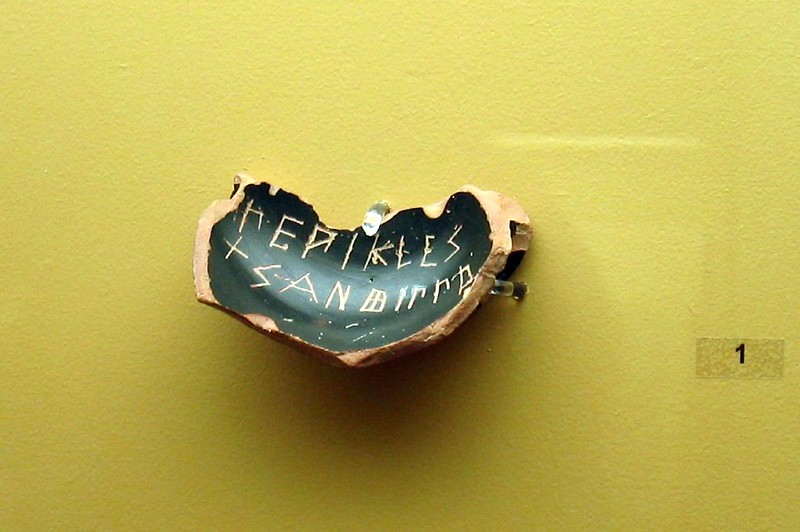
ostracize · /ˈɒstrəsʌɪz/ · /OSS-trə-size/. verb. To exclude or banish someone from society or a group. In Ancient Greece, to punish someone through temporary exile. Latinized form of Greek ostrakizein (to banish), literally “to banish with potshards,” reflecting the ancient Athenian practice of holding a public vote, scratching names onto a potshard or piece of tile, on the fate of dangerous or embarrassing people. If a majority voted so, the person would be banished for 10 years. Ultimately, ostracize is derived from the PIE root ost- (bone), which is the root of words such as ossuary and oyster.
[Read more…]








